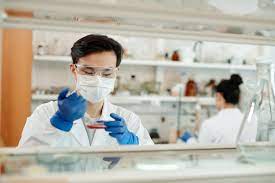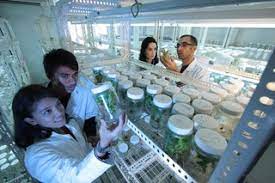The general impression with advancement in biotechnology is that it is safe and a panacea to world’s problems. Recently, however, a detailed review of biotechnology developments suggests that there are several issues to warrant serious concern.
The review catalogued what it called list of harms of biotechnology into several sections, namely health, environment, farming practices, economic/political/social implications, and issues of freedom of choice. Read on
Disadvantages of Biotechnology Health and Healthcare Delivery
In 1989, 37 deaths were reported and approximately 1500 were disabled after taking genetically- modified version of the food supplement L- tryptophan which caused an ailment known as Eosinophilia myalgia syndrome (EMS) .
This is attributed to the release of the supplement without safety tests. It was also reported that several animals died as a result of exposure to the very first commercially- sold GM product (Flavr Savr).
There were also near-deaths and food allergy reactions. In 1996, Brazil nut genes were spliced into soybeans to provide the added protein methionine by a company called Pioneer Hi-Bred. Some individuals, however, are so allergic to this nut that they can go into anaphylactic shock (similar to a severe bee sting reaction) which can cause death. Fortunately, the product was withdrawn before it entered the market.
This probably suggests that the rising case of food allergy in the United States for instance can be linked to the increasing genetically-modified foods in the market. For instance, two research studies independently show evidence of allergenic reactions to GM Bt corn.
Also, farm workers exposed to genetically-modified Bt sprays exhibited extensive allergic reactions. Another study showed that genetically-modified potatoes expressing cod genes were allergenic, while a decade-long study of GM peas was abandoned when it was discovered that they caused allergic lung damage in mice.
It was also reported that allergic reactions to soymilk increased by 50 % following introduction of genetically-modified brands.
There is also a link between the advent of biotechnology and the prevalence of cancer and degenerative disease.
GH is a protein hormone which, when injected into cows stimulates the pituitary gland to produce more milk; thus making milk production more profitable for the large dairy corporations.
One of such products in the market is Monsanto’s genetically-modified rBGH, a genetically-altered growth hormone. However, this hormone also increases the secretion of IGF-1 IGF-1 (a potent chemical hormone that with a 2.5 to 4 times higher risk of human colorectal and breast cancer) by 70%-1000%.

Prostate cancer risk is considered equally serious – in the 2.8 to 4 times range. It also has an indirect, non- traceable effect on cancer rates. The potential of new ways of rearranging the natural order of organisms with genetic mutations may lead to non-traceable influences.
It may reduce the natural immunity and resistance to diseases.
This is particularly so with cancer causing chemicals to which we are exposed to on daily basis. Recently, studies have shown that chemicals which otherwise appear safe may be dangerous when it synergistically react to other chemicals.
A typical example is the chemicals ascorbic acid and sodium benzoate found in soft drinks. Separately, these chemicals are safe but together they form benzene which is carcinogenic. Research has shown that exposure to genetically- modified foods may lower our ability to resist these effects.
The increasing rate of viruses mixing with the gene of other viruses and retroviruses such as HIV to form more deadly viruses known as super viruses is bad news for healthcare delivery. There is also increasing rate of antibiotic threat via milk or plants.
Cows injected with rBGH have a much higher level of udder infections, about 25% higher. Since this hormone causes infections, farmers use loads of antibiotics to contain this ailment.
However, these antibiotics eventually end up in the dairy products we consume, resulting in a public health hazard. Similar risk is encountered using antibiotic markers to track gene movement in cells during genetic engineering.
Another concern is the case of resurgence of infectious diseases, the rate of which has been rising since the advent of biotechnology. Although, there is no clear cut evidence to conclusively blame biotechnology for this, the coincidence is too obvious to ignore.
Although most biotechnology developer claim all is well with the technology and there is nothing to worry about, the increasing rate of food allergies is definitely a concern. The loss of biodiversity in our food supply has grown in parallel with the increase in food allergies.
Recently, the foods we eat and crave are almost the same at all times and precisely those testing positive for food allergies. Allergic reactions are misguided defense reactions against incoming parasites and in GM food cases; the body senses an unnatural invasion.
Cells in our body recognise this lack of vitality, producing antibodies and white cells in response; the correlation between biotechnology development and birth defects and shorter life spans.
We know that rBGh in cows causes a rapid increase in birth defects and shorter life spans and the number of calves born with birth defects to dairy cows has increased significantly.
The concern came from animal studies which are very scary. For instance, when GM soy was fed to female rats, most of their babies died within three weeks compared to a 10% death rate among the control group fed natural soy.
The GM-fed babies were also smaller, and later had problems getting pregnant. When male rats were fed GM soy, their testicles actually changed color from the normal pink to dark blue.
Mice-fed GM soy had altered young sperm. Even the embryos of GM- fed parent mice had significant changes in their DNA. Several such examples abound.
There is also a serious concern about the ingestion of “Pesticide foods.” These are foods that contain genes that produce toxic pesticides.
Originally, plants producing the foods were engineered to produce their own built-in pesticide in every cell which produces a poison that splits open a bug’s stomach and kills them when the bug tries to eat the plant. It is feared that ingestion of such foods might expose humans to the same hazards as bugs.
Read Also : Benefits of Biotechnology Application to Agriculture
Although, there is little knowledge of the potential long-term health impacts of these products, it is still a cause of serious concern. Some GM foods are said to have lower levels of vital nutrients – especially phytoestrogen compounds thought to protect the body from heart disease and cancer.

